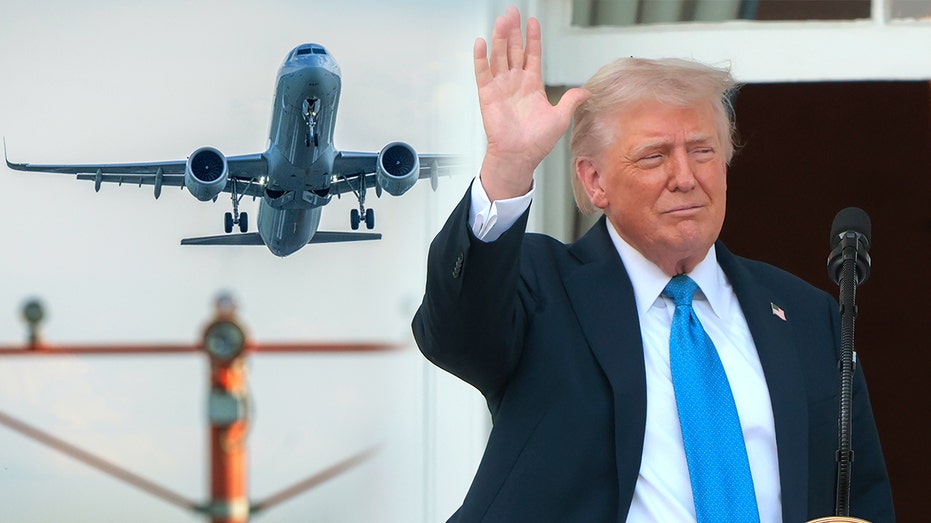Trump travel ban 2.0 is built to survive court challenges, experts say
Immigration order restricting travel from 19 nations could prove difficult to challenge legally, with one attorney noting its broader scope compared to the 2017 Muslim ban.

President Donald Trump’s sweeping new travel ban may prove more legally durable than its 2017 predecessor as immigration advocates prepare for a likely court battle they’re not expected to win.
Trump’s latest travel ban expands on the policy he imposed during his first term targeting seven Muslim-majority nations, a measure the Supreme Court upheld in a 5-4 ruling. Like its predecessor, the new order relies on the same immigration statutes but may rest on firmer legal ground this time.
Attorney Neama Rahmani, a California-based former federal prosecutor who specializes in immigration, told Fox News Digital he anticipated that immigration rights groups would likely sue over Trump's new order.
"But they’ll lose," he said, because "it’s stronger than the last ban."
TRUMP BANS TRAVEL TO US FROM SEVERAL COUNTRIES TO ‘BLOCK DANGEROUS FOREIGN ACTORS’
Rahmani pointed to allegations that the last ban violated religious liberties because it singled out Muslims. This new one included "all sorts of countries," Rahmani said. Trump imposed full or partial bans on 19 countries in his new proclamation, including Muslim-majority countries like Afghanistan and Iran but also non-Muslim-majority countries like Haiti, Venezuela, Eritrea and Burundi.
"You don't have Trump saying that he's imposing a Muslim ban. Those words during the campaign, and even after he was elected, were used against him," Rahmani said, adding that the Supreme Court is also "slightly different" and a "better audience" for Trump this time around.
The 5-4 split in Trump v. Hawaii fell along ideological lines and came before Justices Amy Coney Barrett and Brett Kavanaugh, both Trump appointees, were confirmed to the bench.
Although the Supreme Court has historically given presidents wide latitude over foreign policy and national security, in 2017 the dissenting justices argued the ban amounted to unjustified religious animus disguised as national security.
"The Court’s decision … leaves undisturbed a policy first advertised openly and unequivocally as a 'total and complete shutdown of Muslims entering the United States' because the policy now masquerades behind a façade of national-security concerns," the dissent read.
Democrat lawmakers and immigration rights critics have argued that Trump's new proclamation is rooted in bigotry.
Sarah Mehta, deputy director of policy and government affairs for immigration at the American Civil Liberties Union, told Fox News Digital in a statement that she believed it was designed to "further eviscerate lawful immigration pathways under the false guise of national security."
"We saw the chaos that ensued from the first Trump administration’s Muslim ban, and this executive order will only build on that reign of terror to target people solely based on their nationality or religious beliefs," Mehta said.
Trump said in his proclamation that the restrictions were necessary to prevent terrorist attacks and mitigate other public safety risks because the countries had unreliable screening and vetting processes. Additionally, some had a high occurrence of visa overstays or were uncooperative when it came to accepting their citizens back from the United States, Trump said.
Ilya Somin, who is one of the attorneys challenging Trump’s sweeping tariffs in the U.S. Court of International Trade, wrote in an op-ed that it would be "nearly impossible to challenge this new travel ban on the grounds that it is motivated by ethnic or other bigotry" because of the Supreme Court’s prior ruling.
Somin floated the possibility of challenging the ban on other grounds, including the nondelegation doctrine, which puts limits on how much power Congress can transfer to the executive branch. He noted as an example that two courts have thus far shunned the president’s attempts to bypass Congress and take tariffs into his own hands.
However, Somin conceded that the travel ban presents a higher hurdle than the tariffs case. While the Constitution explicitly gives Congress power over tariffs, Somin said, it "does not clearly" say which branch of government has jurisdiction over immigration restrictions.
What's Your Reaction?

















